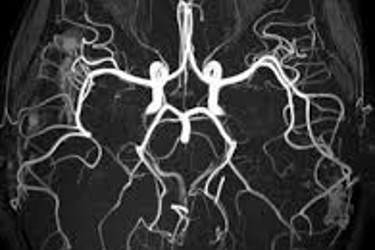
At NHS Fife’s Board meeting this morning (Tuesday 27th July 2021) NHS Fife Chief Executive, Carol Potter, addressed the following in her update to the board.
“July has been a challenging month, where despite everyone’s best efforts, we have continued to see increasing COVID case numbers and COVID admissions, along with an increase in demand for our front-line services.
“The Emergency Department at the Victoria Hospital is currently seeing more patients through its doors each day than it did prior to the COVID pandemic, with numbers exceeding even the traditionally busy winter period - 35% higher than January of this year – and regularly above 200 attendances per day.
“Combined with both general medical and surgical admissions (around 5% higher than pre-COVID levels) and our commitment to remobilising and maintaining our scheduled care services, this means our local health and care services are under increasing strain, with little or no areas left untouched.
“I would like to take the opportunity to acknowledge the continued efforts and commitment of our workforce who feel the effect of the increased pressures on our services on a daily basis.
“Their professionalism, resilience, and drive to do the right thing and deliver the best possible care to the most vulnerable is inspiring and at times humbling, as they continue to dig-deep to deliver health care services across all our communities in Fife.
“It would also be remiss of me not to also thank our patients, their families and carers for their ongoing understanding and support. We recognise the impact of the pandemic on our scheduled care services and I know this has affected many individuals who are having to wait longer than we would have wanted.
“I would also like to appeal to Fifers to use our services appropriately and for their continued support to ensure that they receive the right care in the right place.
“While the majority of patients who present at the Emergency Department are using the service appropriately, and presenting with life-threatening conditions, including suspected heart attacks or strokes, severe breathing difficulties, severe bleeding, or severe injury, there continues to be a significant number of people attending who could be seen more appropriately by their nearest Minor Injuries Unit, their local pharmacy, or their GP.
“These inappropriate presentations add to the pressure within the busy Emergency Department and lead to longer waiting times. Our staff are working exceptionally hard during challenging circumstances and I would urge people to be mindful of this by showing not only patience – but also kindness and courtesy.
“Changes were made last year to urgent care provision with the launch of the ‘Right Care, Right Place’ initiative across Scotland. This new way of delivering urgent care has been designed to help people get the right care in the right place whilst reducing the pressure on busy front-line NHS services.
“Anyone who thinks they may need A&E where their condition is not life-threatening should call NHS 24 on 111, where they can be assessed or directed towards the most appropriate service for them. If A&E is the most appropriate place to provide the right care, patients will either be directly referred to A&E by NHS 24 or to a telephone or video consultation with a senior clinician.
“Those with life-threatening conditions should call 999. For further information on where to access the right medical care, Fifers can visit the NHS Inform website at: NHSinform.scot/right-care
“I would like to end my update on a positive note, as we look ahead to our data and forecasting for the end of July, we are starting to see evidence of the COVID case rate beginning to reduce across most areas in Fife.
“This is in part testament to all those Fifers who have come forward for both of their COVID vaccinations, who are participating in regular testing and self-isolating if they test positive or a close contact of someone who has, as well as their continued commitment in adhering to maintaining safe physical distance, the wearing of face coverings and good hand hygiene.
“If we all work together and individually continue to commit to playing our part, we will overcome the challenges presented by the pandemic and ensure our health and care services can deliver for those in need.”
